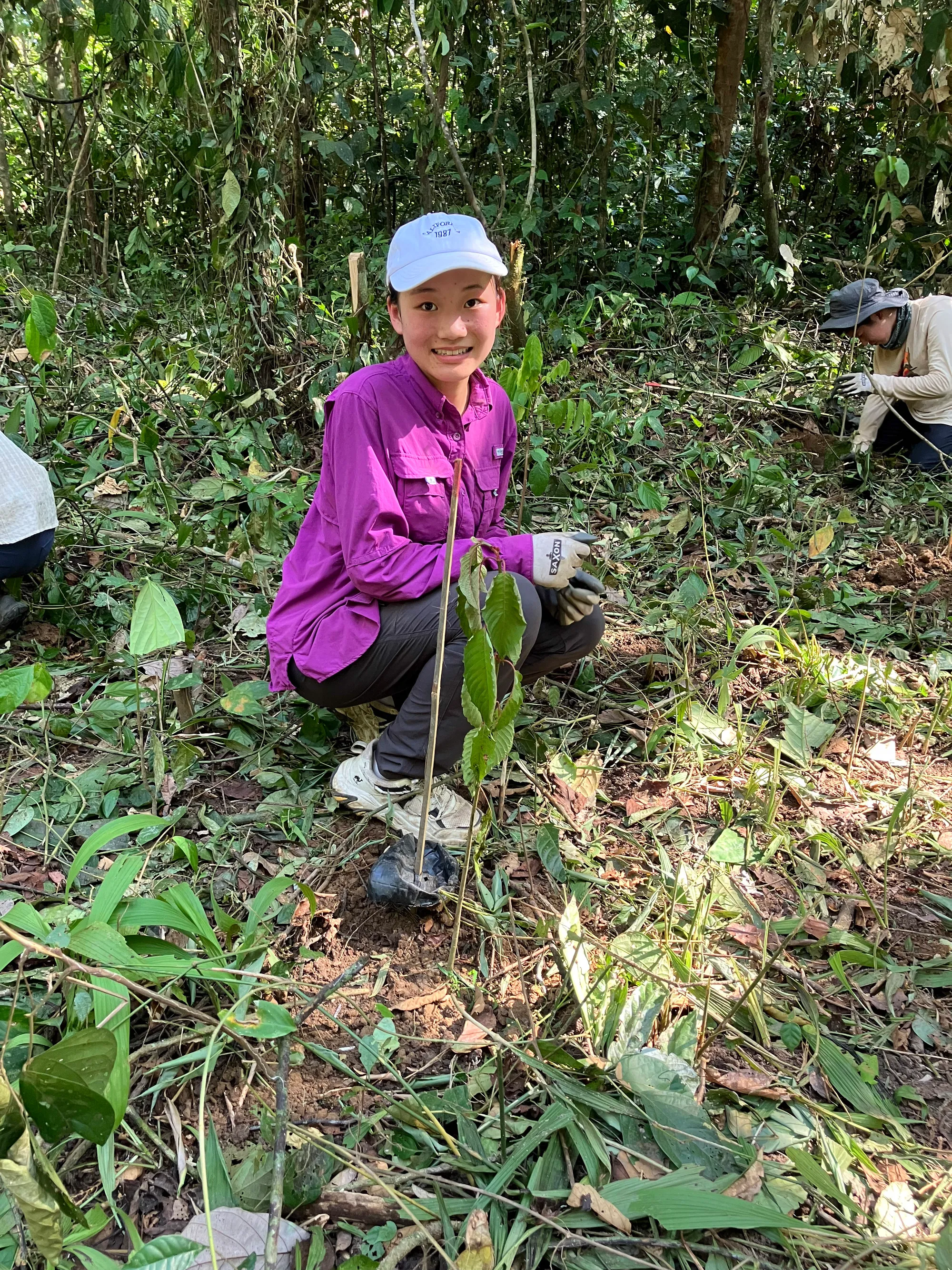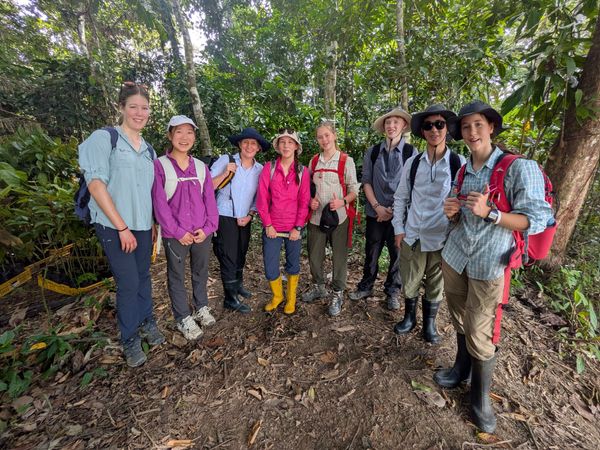Borneo adventures
By Ms Sam Lonsdale and Mrs Jane Smith, Teachers
A group of intrepid Year 9 and 10 students ventured to the island of Borneo in the July school holiday break. During this eye-opening experience, the students not only enhanced their leadership skills but learnt about their own strength of character and worked as a team to plan the trip and problem solve to overcome challenges presented. They demonstrated great resilience, grit and perseverance, as well as learnt about and showed an appreciation for the people, history and natural beauty of Malaysian Borneo.
The tour was student led, under the guidance of a World Challenge leader and Radford College Teachers Mrs Jane Smith and Ms Sam Lonsdale. The students were divided into smaller teams rotating between important tasks of team leadership, handling the budget, organising recreation and relaxation activities and managing accommodation and transport checks.
Starting in the urban capital of Kota Kinabalu the team quickly adapted to the local cuisine and enjoyed local food such as fried rice, nasi goreng and noodle dishes. The students explored the food and craft markets, heritage features of the city, and the many murals decorating the buildings. They also dabbled in river rafting and paddle boarding.
A highlight of the tour was the trek in the foothills of Mount Kinabalu, the highest mountain in Malaysia (4,095 metres). With the essentials packed into backpacks for the jungle trek, which included a hammock for sleeping in, a mosquito net and a much-needed walking stick, the group ventured into the foothills of Mount Kinabalu.
The group passed pineapple plants, coffee trees, banana palms and rice paddocks that the villagers harvest throughout the year. Local guides helped navigate the technical terrain, building bamboo bridges to cross gushing streams and motivating the group in the hot, humid conditions. The students relished the opportunity to sleep in the jungle hammocks, learnt about the local tribe and hunting techniques, and witnessed how the jungle comes alive at night with the sounds of insects, frogs, spiders and the call of gibbons.

Following the trek, the group was welcomed to a homestay in the village of Guas Nabalu where the students had Borneo cuisine cooking lessons, learnt the complex process of coffee production and tasted the delights at the local pineapple factory.
The group then spent five days working and learning about the Kopel Forest Restoration Project established in 1998 on the banks of the Kinabatangan River. The students enjoyed a sunset river boat ride to try and spot the Borneo five, and managed to set eyes on four: the Proboscis Monkey, the Orangutan, the Rhinoceros Hornbill and the Estuarine Crocodile. The Pygmy Elephant remained elusive.
The students have returned home with a deeper appreciation for the world’s rich biodiversity and the dire need for sustainable practices, an enhanced understanding of how communities can work together to create positive change, and a strong sense of their own power and influence in shaping the world around them.
Our trip to Borneo was genuinely just an awesome experience. The scenery, the culture, the food – every part of it was so much fun. It was amazing to enjoy the hospitality of the local people, who welcomed us into their homes and communities. I would highly recommend a trip like this – Alia
Borneo’s landscape was amazing, giving me real appreciation about biodiversity in the world today. I especially noticed the kindness of the local people in Borneo and the depth of how their culture is connected to the environment around them – Rubin
